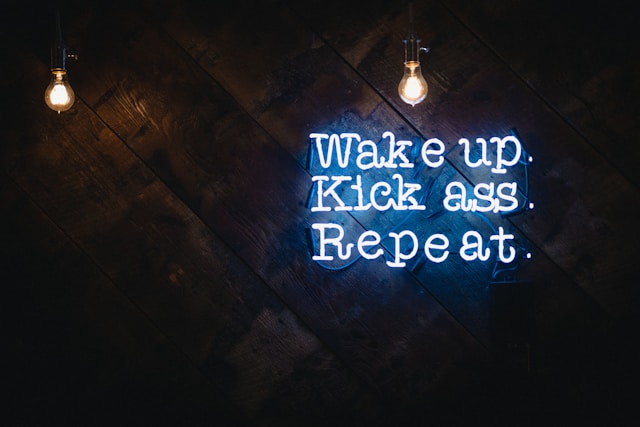- Get out of your comfort zone by changing the cues
- Treat mistakes as an opportunity to refine your strategy
- Reframe your actions by turning bad habits into constructive skills
- Practice patience, curiosity, and self-kindness
- Make progress tangible by tracking it
We all have old habits that sneak into our days like uninvited guests. They feel comfortable, predictable, and sometimes even harmless, but deep down, you know they’re holding you back.
The good news? Habits aren’t permanent. With a bit of awareness and the right tools, you can gently adjust your routines to support your goals. I’ll show you how habits work and how to reshape them so you can change your story starting from today.

Emotional Comfort Zones That Trap Us
Your brain loves patterns, and once it finds comfort, it wants to stay there. That’s why you keep:
- reaching for the same snacks,
- scrolling through your phone late at night,
- hitting snooze again and again.
The tricky part? Your comfort zone disguises itself as safety, when in reality it keeps you stuck.
The key is not to blame yourself but to outsmart it. You can hide the remote, stock healthier snacks, or put your phone on the table so you need to get up to turn the alarm off.
By changing the cues around you, you change the script.
Awareness is like switching on the light in a messy room: you finally see what’s been holding you back. Once you spot the patterns, you gain the power to change them. The moment you realize that stress makes you reach for sweets, for example, you can choose a different outlet, like a short walk or a chat with a friend.
When you treat your routines like clues rather than flaws, change feels far less intimidating.

Spotting the Clash Between Old Habits and Goals
Sometimes your goals and your old habits are like two friends who just can’t get along. These clashes are normal, and they’re simply signals showing you where change is needed.
- You want to get fit, but the habit of late-night snacking keeps calling your name.
- You dream of saving money, yet you can’t resist clicking “add to cart.”
When you think about breaking old habits, it’s tempting to plan a huge overhaul. But your brain prefers manageable tweaks, not massive life makeovers. That’s why small swaps work so well.
Changing old habits isn’t just about short bursts of motivation. It’s about reinforcing new choices until they become second nature.
- Celebrate every small win, even if it’s skipping one soda.
- Reward yourself in meaningful ways, like enjoying extra downtime after completing a new routine.
- Track your progress in a journal or app, and let the little victories pile up.
Over time, reinforcement strengthens your new behaviors, making them harder to shake. Instead of old habits ruling your life, you’ll find yourself running the show with confidence.

Transforming Bad Habits into Skills
What if your old habits could become the foundation for new skills? For example:
- Constant fidgeting can transform into learning mindfulness or movement exercises,
- Overindulging in TV could spark an interest in storytelling or scriptwriting.
By reframing the action, you create a bridge from destructive behavior to constructive skills.
At the heart of turning old habits into opportunities is the belief that you can always learn and improve. Instead of saying, “I can’t change,” you remind yourself, “I’m still learning.” This simple shift makes change less intimidating and more exciting. You’ll start to see setbacks as stepping-stones and progress as an ongoing journey.
By practicing patience, curiosity, and self-kindness, your mindset will support long-term transformation.
Breaking old habits doesn’t happen overnight, so start with goals you can actually reach. Instead of vowing to “never snack again,” try swapping one treat for fruit once a day. Small, specific goals keep you from feeling overwhelmed and make progress much easier to track.
Over time, those little victories will add up to lasting change without draining your willpower.
Tracking your journey makes old habits easier to tackle because it turns vague ideas into clear numbers. Seeing your progress builds confidence and helps you spot patterns you might miss. If you slip, no problem, adjust and keep moving forward.

How to Stay Motivated Long-Term
Ending old habits is less about bursts of willpower and more about staying motivated for the long run. Old habits don’t have to hold you back forever. With awareness, small adjustments, and strategic planning, you can transform routines into opportunities for growth.
Each step you take, no matter how small, brings you closer to the life you want. So, start today, celebrate your progress, and keep moving forward. You’ve got this!



